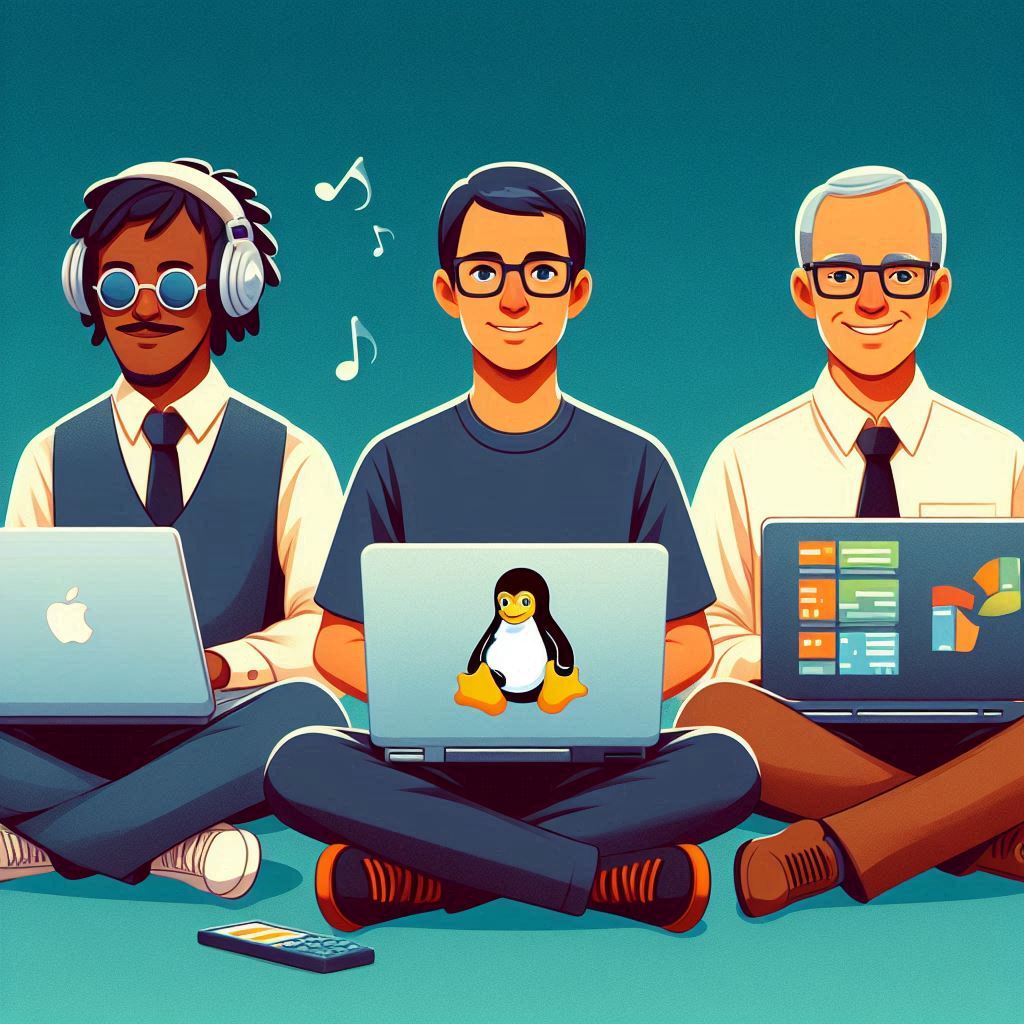When it comes to choosing a computer operating system, the decision often depends on professional needs and preferences. Windows, macOS, and Linux each cater to distinct user bases with specific requirements. Understanding which professionals gravitate towards these operating systems can shed light on their unique strengths and functionalities. Here’s a closer look at the common professionals who typically use Windows, macOS, and Linux.
Windows: The Corporate Backbone
- Office Workers and Administrative Staff
Industry: Corporate, Government, Education
Reason: Windows dominates the corporate environment due to its compatibility with a wide range of business applications like Microsoft Office, Outlook, and enterprise resource planning (ERP) systems. Its widespread use ensures seamless collaboration and standardization across organizations.
- Engineers and Architects
Industry: Engineering, Construction, Manufacturing
Reason: Many engineering and architectural software suites, such as AutoCAD, SolidWorks, and Revit, are optimized for Windows. The operating system’s robust performance and compatibility with powerful hardware configurations make it a preferred choice for these professionals.
- IT Support and System Administrators
Industry: Information Technology
Reason: Windows Server and Active Directory are critical tools in IT infrastructure. System administrators and IT support professionals rely on Windows to manage networks, user accounts, and security protocols efficiently.
macOS: The Creative Hub
- Graphic Designers and Digital Artists
Industry: Advertising, Media, Entertainment
Reason: macOS is favored by graphic designers and digital artists for its superior color accuracy and integration with design software like Adobe Creative Suite, Sketch, and Final Cut Pro. The retina display and sleek hardware design further enhance the creative workflow.
- Video Editors and Filmmakers
Industry: Film, Television, Online Media
Reason: macOS offers powerful video editing tools such as Final Cut Pro X and iMovie, which are exclusive to the platform. The stability and performance of macOS make it ideal for handling large video files and complex editing tasks.
- Musicians and Audio Engineers
Industry: Music Production, Broadcasting, Sound Design
Reason: macOS’s low latency and robust performance are critical for audio production. Professionals in this field often use software like Logic Pro X, GarageBand, and Ableton Live, which run smoothly on macOS.
Linux: The Developer’s Playground
- Software Developers and Programmers
Industry: Technology, Software Development, Research
Reason: Linux is highly customizable and offers powerful tools for software development. It supports a wide range of programming languages and development environments, making it a favorite among developers who appreciate open-source software and need a reliable, configurable platform.
- System Administrators and Network Engineers
Industry: Telecommunications, Cloud Computing, IT Infrastructure
Reason: Linux’s stability and security make it ideal for managing servers and network systems. Many cloud services and enterprise servers run on Linux, requiring professionals in these fields to be proficient in this operating system.
- Cybersecurity Experts
Industry: Cybersecurity, Ethical Hacking, Digital Forensics
Reason: Linux is the go-to operating system for cybersecurity professionals due to its robust security features and tools like Kali Linux and Parrot OS, which are designed specifically for penetration testing and security research.
Each of the three major operating systems—Windows, macOS, and Linux—caters to different professional needs, leveraging their unique strengths to serve various industries effectively. Windows remains the cornerstone of corporate environments, macOS thrives in creative industries, and Linux is indispensable in tech and development fields. Understanding these preferences helps professionals choose the right tools for their specific tasks, ultimately enhancing productivity and efficiency.



